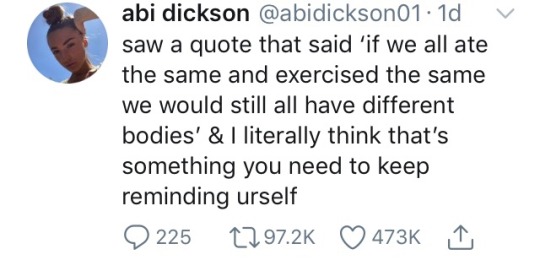idk i'd fuck with being a wei the weis were slay i'm sure wei ying would take another sister
Last active 60 minutes ago
Don't wanna be here? Send us removal request.
Text
whatever happened to men shoving each other against the wall out of pure lust, thinly veiled as hatred? we're in need of more homoerotic, yet homophobic doomed romances in media
18K notes
·
View notes
Text
Yeah running water is cool but uuh. You do know that if you use it to pour enough water into a container you can put your head in it and drown and DIE??? Yeah this is crazy and evil and sad. What if a kid does that. This is why I propose the idea to make it so people pay 200000$ every time they use the sink!!! This is because no child has that much money so they are physically unable to harm themselves <3 Wdym this is insane and we shouldn't be paying 200000$ just to get a glass of water. There are no ulterior motives. No it's not about taking your money. This is for child safety. Don't you want children to be safe??? You evil sicko freak. What's wrong with you for thinking this is wrong and won't work.
29K notes
·
View notes
Text

Silksong tomorrow!!!!!!!! Forreals
581 notes
·
View notes
Text
The data does not support the assumption that all burned out people can “recover.” And when we fully appreciate what burnout signals in the body, and where it comes from on a social, economic, and psychological level, it should become clear to us that there’s nothing beneficial in returning to an unsustainable status quo.
The term “burned out” is sometimes used to simply mean “stressed” or “tired,” and many organizations benefit from framing the condition in such light terms. Short-term, casual burnout (like you might get after one particularly stressful work deadline, or following final exams) has a positive prognosis: within three months of enjoying a reduced workload and increased time for rest and leisure, 80% of mildly burned-out workers are able to make a full return to their jobs.
But there’s a lot of unanswered questions lurking behind this happy statistic. For instance, how many workers in this economy actually have the ability to take three months off work to focus on burnout recovery? What happens if a mildly burnt-out person does not get that rest, and has to keep toiling away as more deadlines pile up? And what is the point of returning to work if the job is going to remain as grueling and uncontrollable as it was when it first burned the worker out?
Burnout that is not treated swiftly can become far more severe. Clinical psychologist and burnout expert Arno van Dam writes that when left unattended (or forcibly pushed through), mild burnout can metastasize into clinical burnout, which the International Classification of Diseases defines as feelings of energy depletion, increased mental distance, and a reduced sense of personal agency. Clinically burned-out people are not only tired, they also feel detached from other people and no longer in control of their lives, in other words.
Unfortunately, clinical burnout has quite a dismal trajectory. Multiple studies by van Dam and others have found that clinical burnout sufferers may require a year or more of rest following treatment before they can feel better, and that some of burnout’s lingering effects don’t go away easily, if at all.
In one study conducted by Anita Eskildsen, for example, burnout sufferers continued to show memory and processing speed declines one year after burnout. Their cognitive processing skills improved slightly since seeking treatment, but the experience of having been burnt out had still left them operating significantly below their non-burned-out peers or their prior self, with no signs of bouncing back.
It took two years for subjects in one of van Dam’s studies to return to “normal” levels of involvement and competence at work. following an incident of clinical burnout. However, even after a multi-year recovery period they still performed worse than the non-burned-out control group on a cognitive task designed to test their planning and preparation abilities. Though they no longer qualified as clinically burned out, former burnout sufferers still reported greater exhaustion, fatigue, depression, and distress than controls.
In his review of the scientific literature, van Dam reports that anywhere from 25% to 50% of clinical burnout sufferers do not make a full recovery even four years after their illness. Studies generally find that burnout sufferers make most of their mental and physical health gains in the first year after treatment, but continue to underperform on neuropsychological tests for many years afterward, compared to control subjects who were never burned out.
People who have experienced burnout report worse memories, slower reaction times, less attentiveness, lower motivation, greater exhaustion, reduced work capability, and more negative health symptoms, long after their period of overwork has stopped. It’s as if burnout sufferers have fallen off their previous life trajectory, and cannot ever climb fully back up.
And that’s just among the people who receive some kind of treatment for their burnout and have the opportunity to rest. I found one study that followed burned-out teachers for seven years and reported over 14% of them remained highly burnt-out the entire time. These teachers continued feeling depersonalized, emotionally drained, ineffective, dizzy, sick to their stomachs, and desperate to leave their jobs for the better part of a decade. But they kept working in spite of it (or more likely, from a lack of other options), lowering their odds of ever healing all the while.
Van Dam observes that clinical burnout patients tend to suffer from an excess of perseverance, rather than the opposite: “Patients with clinical burnout…report that they ignored stress symptoms for several years,” he writes. “Living a stressful life was a normal condition for them. Some were not even aware of the stressfulness of their lives, until they collapsed.”
Instead of seeking help for workplace problems or reducing their workload, as most people do, clinical burnout sufferers typically push themselves through unpleasant circumstances and avoid asking for help. They’re also less likely to give up when placed under frustrating circumstances, instead throttling the gas in hopes that their problems can be fixed with extra effort. They become hyperactive, unable to rest or enjoy holidays, their bodies wired to treat work as the solution to every problem. It is only after living at this unrelenting pace for years that they tumble into severe burnout.
Among both masked Autistics and overworked employees, the people most likely to reach catastrophic, body-breaking levels of burnout are the people most primed to ignore their own physical boundaries for as long as possible. Clinical burnout sufferers work far past the point that virtually anyone else would ask for help, take a break, or stop caring about their work.
And when viewed from this perspective, we can see burnout as the saving grace of the compulsive workaholic — and the path to liberation for the masked disabled person who has nearly killed themselves trying to pass as a diligent worker bee.
I wrote about the latest data on burnout "recovery," and the similarities and differences between Autistic burnout and conventional clinical burnout. The full piece is free to read or have narrated to you in the Substack app at drdevonprice.substack.com
21K notes
·
View notes
Text

I can’t stop laughing at this 🤣😂🤣
144K notes
·
View notes
Text













on being yourself
@ brainsoupp_ on twitter// @stmichaelthearchangel// @ cybermrcury on twitter// @throughmy-eyez // @ shellerina on twitter// @caesarsaladinn// @ nelsoncj4 on twitter // @ heimberg_a on twitter// make your own kind of music by cass elliot// @ soledadfrancis on twitter// ? // @ sourcenectar on twitter// @superorganism
47K notes
·
View notes
Text
how it feels when one of your hyperfixations comes back and stronger than ever

71K notes
·
View notes
Text
the way the internet facilitates a sort of memetic decay of phrases related to sexual attraction to slowly, inexorably point towards the same conventionally attractive people in their 20s instead of the original meanings is so disgusting to me
56K notes
·
View notes
Text
Drunk!Wei Wuxian: Lan Zhan’s so pretty… His hair’s so soft and silky, and his eyes are so light and captivating, and his face is so so pretty… Drunk!Wei Wuxian: Uh, but don’t tell him that, okay? It’s a secret. Drunk!Lan Wangji, nodding solemnly: Of course. I’ll never tell him. Jiang Cheng, watching from afar: What the fuck?
283 notes
·
View notes
Text
forgive me father for i have opened a notification and read the message within to make the red dot go away and then forgot to reply for a month . it will happen again
25K notes
·
View notes
Text

The communists want to take away YOUR MOLD
47K notes
·
View notes
Text

Silco looks like a rich white old man who comes from old money and owns a yacht and Vander look he runs a coffee shop in a gentrified neighborhood
15K notes
·
View notes
Text
I am a: ⚪️Man ⚪️Woman 🔘Digital Artist
Looking for: ⚪️Men ⚪️Women 🔘My fucking tablet pen
59K notes
·
View notes
Text
i gave your golden retriever boyfriend chocolate. idgaf
19K notes
·
View notes


